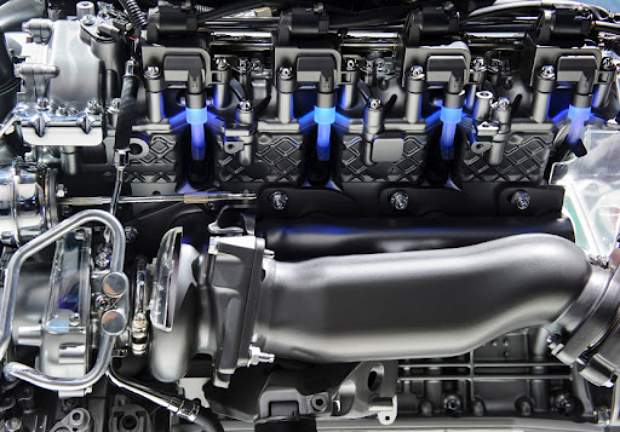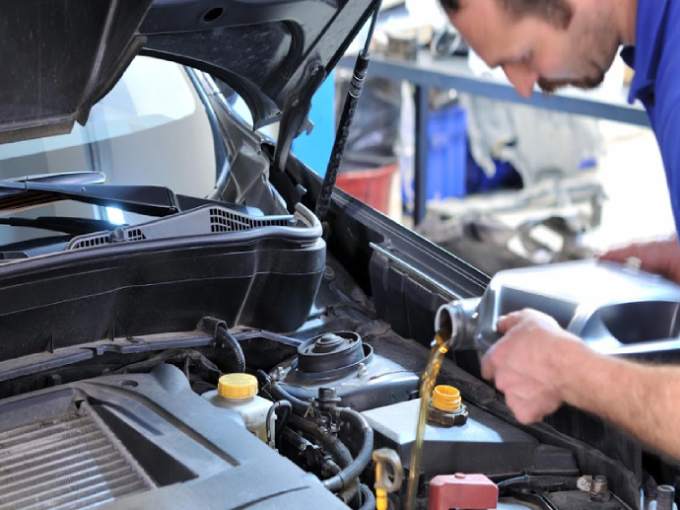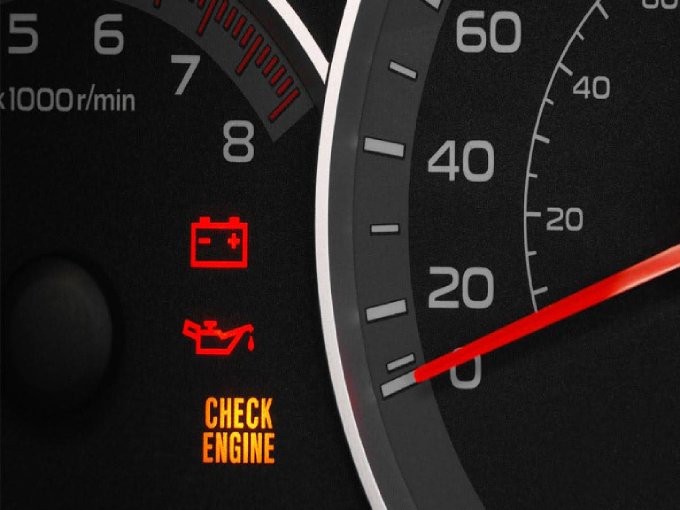With holiday season being one of the most popular times for people shopping for a new vehicle, you may come across the term CVT Transmission. What does this term mean? And more pointedly, is it something you should buy – or something you should avoid?
CVTs were once derided as the shiftless “rubber band” transmission that made cars seem as if they were revving up forever. But CVTs are no longer a mere experiment by automakers looking for new ways to improve efficiency. They’re becoming so common that it’s hard to find a mainstream manufacturer that doesn’t offer them in at least some models. Audi, Chevrolet, Ford, Honda, Jeep, Nissan, Subaru and Toyota all provide CVTs as the standard transmission in at least one model. And some carmakers have been doing so for many years.
What is CVT?
CVT stands for continuously variable transmission, which is different from a conventional automatic transmission. The standard automatic features a complex series of gears that transmit the power of the engine to the wheels. The CVT, on the other hand, doesn’t have any gears. It features a pair of pulleys of variable width, connected by a belt. One pulley is connected to the engine, the other to the wheels. Because their width is variable, it changes depending on how much power the car needs, hence the term “continuously variable transmission”.
The CVT also works a little differently from a conventional transmission. To a certain extent, you do operate it more or less normally—sliding the shift lever from Park into Drive, then zooming off! From there, though, the CVT gets a little bit more complex.
You see, with ordinary automatics, there are a set number of gears—so, for instance, you may see a vehicle marked as a “6-speed automatic.” Each of these gears accommodates a certain speed range, so as you start driving faster, the car may automatically shift from first gear into second, and maybe then on to the third.
With a continuously variable transmission, though, you do not have all these gears. Actually, you just have one. Unlike the individual gears in an ordinary automatic, this gear can handle all speeds. That’s why they call it variable.
CVT Transmission vs. Automatic
There are several differences between the automatic and continuously variable transmission, apart from the basic functionality of each. Some are more obvious than others. For instance, when you’re driving a vehicle with CVT, you won’t notice or “feel” gears shifting. You’ll just notice the car getting faster or slower. In that sense, it might make for a smoother ride. The unusual thing is that it essentially chooses the ideal speed for any given situation and holds it constant—even if you’re accelerating the car.
Say, for instance, you try to speed up to pass another car. When you slam on the gas, the car will immediately zoom to a nice, brisk speed – but then, it will hold steady at that speed, even as you continue to apply pressure to the gas pedal. So that feeling you get in an ordinary automatic, where you climb through the gears, just isn’t there.
Another difference you may notice, when driving a vehicle like this, is an easier take off. Since there are no gears in a CVT transmission, your vehicle will find it easier to get to the ideal torque ratio and maintain it. This means it will almost effortless for the car to take off from a stoplight, as well as easier to climb even on difficult terrain.
Needless to say, driving a vehicle like this is a unique experience, and it’s becoming more and more popular with some auto manufacturers. Many automakers use CVTs because it can get maximum power out of a small engine, therefore delivering a quicker, more reactive acceleration. This is also the reason why vehicles with four-cylinder engines are often the ones with CVTs.
Cars with continuously variable transmission
Because cars with a continuously variable transmission and ones equipped with a standard automatic look the same, you may not be able to tell the difference when car shopping. But here are the car makes and models that most often use CVT transmissions:
- Mitsubishi, Nissan & Subaru – these car manufacturers often use continuously variable transmission not just for their regular models, but also for their SUVs.
- Honda & Toyota – with over a dozen models that feature a CVT transmission, these two Japanese automakers are also on the rise.
- European manufacturers – although CVTs are more common among Japanese brands. Some European car manufacturers also started adopting it for a few of their models, including Mercedes-Benz A-Class and B-Class, as well as Renault Koleos and Megane.
If you’d like to know what type of transmission a car has before buying it, it’s easy to do for new vehicles, as this is usually printed on the window sticker, but you can also find it on the manufacturer’s website or printed brochure. If you’re buying a used car, then further research may be required, but typing the make, model and year in a search browser should do the trick.
CVT Transmission Problems
But before actually buying a car with this type of transmission, you might want to look into the CVT transmission reliability. Is this the best kind of transmission for your next vehicle? Certainly, there are some advantages:
- This kind tends to get slightly better gas mileage, especially in city driving. Fuel efficiency is a great advantage of CVTs because they can adjust gear ratios instantaneously. They also have an infinite range. Estimates place an average sedan with CVT transmission at 38 miles per gallon. You’ll also find this type of transmission in most hybrids.
- The power delivered is simple and straightforward.
- The ride itself tends to be smooth; you never feel the gears shifting, because, well, they don’t!
But there are also drawbacks, the most common complaint of some drivers being that a continuous variable transmission doesn’t allow for quite as much speed. Also, some drivers prefer the escalating gear shifts to the steady hum of this new technology. Other CVT transmission problems include:
- Overheating
- Sudden loss of acceleration
- Slipping, jerking & shuddering
- Excessive wear and stretching of the belt
- Droning sound
- Cost of repair and maintenance
Ultimately, it’s up to you—but we do recommend that you drive a CVT transmission before you purchase one!
_______________________________________________________________________________________
Aamco of Keller Your Locally Trusted Auto Repair Experts
Keeping you and your family safely on the road is important to us at AAMCO Keller. If you believe you’re facing potential issues with your car or need routine maintenance such as a regularly scheduled Oil and Filter change , our expert team at AAMCO of Keller is here to help. Stop into our shop located at 1485 S. Main St., Keller, TX 76248 or contact us today for an appointment.
Have your car properly serviced by the locally trusted experts at AAMCO of Keller. Call us today at (817) 761-4757 or schedule your appointment online now.
_____________________________________________________________________________________
AAMCO Of Keller, TX
AAMCO Transmissions of Keller our technicians are the best trained in the industry with not only 20 years experience on new cars but also over 60 years experience in the automotive industry. Our goal is not only to provide the best product in the industry but also the best customer service available. A recent survey showed that over 95% of cars serviced with major repairs at AAMCO are still in service with many reaching the 100,000 mile range without failure.
At AAMCO of Keller we believe that getting the best value for your dollar is the most important part of any repair. That is why all of our services come with a minimum of a one year warranty and not the typical 90 days provided by most repair shops. We use only the highest quality parts available.
AAMCO of Keller is a full-service auto repair and preventive maintenance center. We are automatic and manual transmission experts. We provide transmission service and maintenance as well as transmission flush & filter service. We are conveniently located for your service and maintenance needs and we are qualified to repair and service all domestic and imported cars, trucks, and SUV’s using parts that are equal to or exceed the standards of those parts originally used by the manufacturers. We are definitely the cost-effective alternative to car dealership servicing for all scheduled maintenance of your personal or company auto, pickup or truck. Regardless of where it was built, we will service your car or truck and still maintain the manufacturer’s warranty. We honor most extended warranties.
AAMCO of Keller is independently owned and operated. We pride ourselves on getting the services or repairs on your auto right the first time by our highly qualified service technicians. So drop your auto, SUV, or truck off today and allow us to provide you with excellent service. We look forward to servicing your vehicle.






.jpg)



